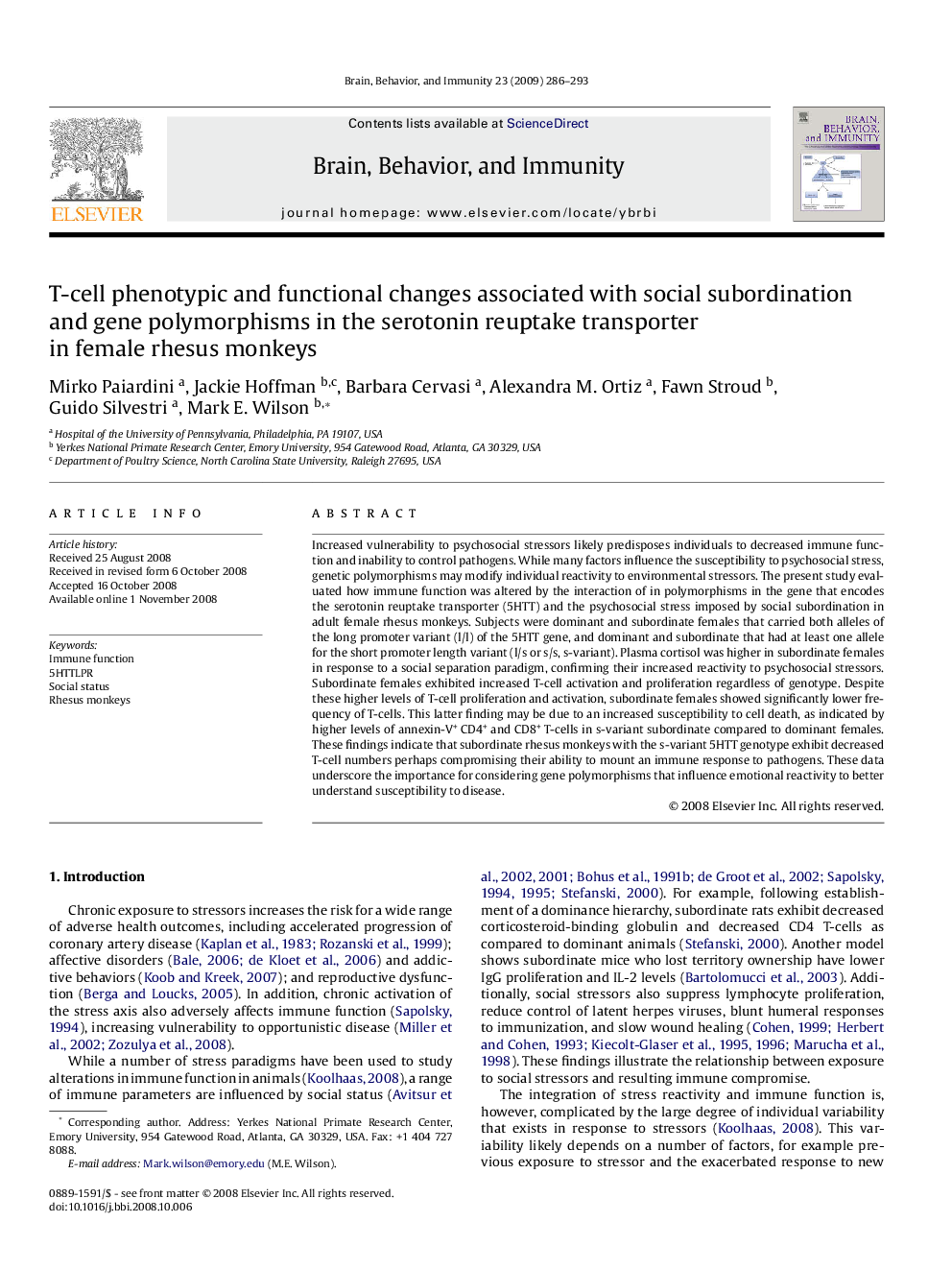| Article ID | Journal | Published Year | Pages | File Type |
|---|---|---|---|---|
| 10455011 | Brain, Behavior, and Immunity | 2009 | 8 Pages |
Abstract
Increased vulnerability to psychosocial stressors likely predisposes individuals to decreased immune function and inability to control pathogens. While many factors influence the susceptibility to psychosocial stress, genetic polymorphisms may modify individual reactivity to environmental stressors. The present study evaluated how immune function was altered by the interaction of in polymorphisms in the gene that encodes the serotonin reuptake transporter (5HTT) and the psychosocial stress imposed by social subordination in adult female rhesus monkeys. Subjects were dominant and subordinate females that carried both alleles of the long promoter variant (l/l) of the 5HTT gene, and dominant and subordinate that had at least one allele for the short promoter length variant (l/s or s/s, s-variant). Plasma cortisol was higher in subordinate females in response to a social separation paradigm, confirming their increased reactivity to psychosocial stressors. Subordinate females exhibited increased T-cell activation and proliferation regardless of genotype. Despite these higher levels of T-cell proliferation and activation, subordinate females showed significantly lower frequency of T-cells. This latter finding may be due to an increased susceptibility to cell death, as indicated by higher levels of annexin-V+ CD4+ and CD8+ T-cells in s-variant subordinate compared to dominant females. These findings indicate that subordinate rhesus monkeys with the s-variant 5HTT genotype exhibit decreased T-cell numbers perhaps compromising their ability to mount an immune response to pathogens. These data underscore the importance for considering gene polymorphisms that influence emotional reactivity to better understand susceptibility to disease.
Related Topics
Life Sciences
Immunology and Microbiology
Immunology
Authors
Mirko Paiardini, Jackie Hoffman, Barbara Cervasi, Alexandra M. Ortiz, Fawn Stroud, Guido Silvestri, Mark E. Wilson,
